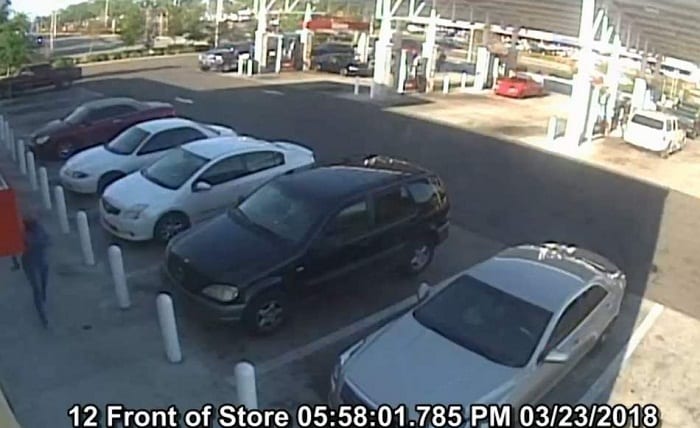In a rather grisly move, two Florida police personnel went to a funeral home and attempted to use a dead man’s finger to unlock his phone as part of their investigation, reported the Tampa Bay Times. The suspect was shot dead by a police officer after he attempted to drive away when questioned.
Back in March 23, two police officers Matthew Steiner and Prentice Ables spotted Linus Phillip Jr., 30, at a gas station in Largo, Florida. Phillip’s vehicle had heavily tinted windows, which violates Florida law. The officers pulled him over and asked for the paperwork of the vehicle. Phillip provided police with paperwork before one of the officers asked him why the car smelled of marijuana.
Scared, Phillip tried to drive away when the officers attempted to lawfully detain him and search his car. Officer Steiner was halfway out of the car, when Phillip allegedly put the car in reverse and accelerated nearby the gas pump. Fearing for his life, the officer fired his weapon. He allegedly fired four shots which led to Phillip’s death.
Phillip had marijuana, crack cocaine, powdered cocaine, hydromorphone pills, and over $1,500 in cash in his pockets at the time. He had a past criminal history but did not have a weapon in his possession, according to the police report. The Florida State Attorney’s Office later ruled the shooting as justified, saying it was a legal performance of his duty by the officer.
But afterwards, things get weird.
According to Lieutenant Randall Cheney, there’s a 48- to 72-hour window to access a phone using just the fingerprint sensor. Police received Phillip’s phone within that window, but after the body was released from state custody to the Sylvan Abbey Funeral Home in Clearwater, Florida.
Police then showed up at the funeral home with the phone, and were taken to Phillip’s corpse. They then held the body’s hands up to the phone’s fingerprint sensor to try and unlock it. This understandably made Victoria Armstrong, Phillip’s fiance, upset.
“I just felt so disrespected and violated. Nobody even called us from the facility to let us know detectives were coming there at all is very disturbing,” Armstrong said.
Is it even legal?
In 2014, a Supreme Court ruling made it unconstitutional for police to your phone during an arrest without a warrant. People can also invoke Fifth Amendment protections against self-incrimination if authorities want the password to a phone. However, if your device feature biometric-based security, such as fingerprint, all those Fifth Amendment protections are thrown out. And when it comes to the dead, none of these matters.
So what police did was completely legal, but unethical.
“While the deceased person doesn’t have a vested interest in the remains of their body, the family sure does, so it really doesn’t pass the smell test,” said Charles Rose, professor and director of the Center for Excellence in Advocacy at Stetson University College of Law. “There’s a ghoulish component to it that’s troubling to most people.”



















